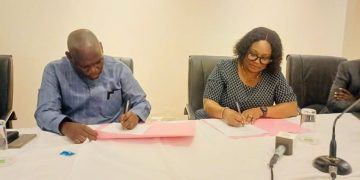The Ministry of Health has received an alert indicating a cholera outbreak in Vubwi District of Eastern Province since 22nd January 2023.
Vubwi District has confirmed 4 cases, and are investigating another 7 suspected cases. Sadly, we have recorded one (1) death from there. The areas affected are villages within Chikoma, Mbande, Chipanje, and Mzigawa Rural Health Center catchment areas.
The District Rapid Response teams supported by Provincial Health Offices are urgently responding to try and control, and break transmission of cholera in the affected areas. In accordance with our National Multi-sectoral Plan, response activities include:
- Activation of the District Public Health Emergency Operations Centers and Incident Management System.
- Activation of the District Epidemic Preparedness Prevention Control and Management Committee meetings.
- Intensified surveillance activities including active case search and contact tracing.
- Enhanced Risk Communication and Community sensitization activities
- Advocacy and stakeholder engagement
- Provincial team deployment to support district responses
To these ends, we have so far identified all the contact persons to the cases and established that the communities so far affected potentially includes up to 719 people in 6 villages in Vubwi District.
A national level multisectoral/multidisciplinary team of experts led by the Zambia National Public Health institute (ZNPHI) were dispatched this morning to support the response. The support will be especially in the areas of surveillance, laboratory, Infection Prevention and Control, case management and risk communication and community engagement.
Zambia remains at risk of similar outbreaks beyond the currently affected districts, considering the ongoing cholera outbreak in neighboring countries that started in March 2022. The continued movement of our population across the borders for various reasons including trade and other social reasons has increased this risk. Eastern and Muchinga provinces are particularly the highest risk provinces for contracting of the disease. The Districts that are mostly at risk of this importation include Chipata, Vubwi, Chipangali, Lumezi, Chasefu, Lundazi and Chama in Eastern province and Nakonde, Isoka and Mafinga in Muchinga province.
Furthermore, some areas within Lusaka, Luapula, Northern, Copperbelt, Central and Southern provinces are known to be cholera hotspots.
To prevent transmission across districts and from other affected countries, the ZNPHI has put in place the following: - National Cholera Task Force has been placed in response action mode.
- National Public Health Emergency Operations Center based at ZNPHI has been activated.
- Partners have been engaged and a number of them supporting the response.
- A 72-hour cholera contingency plan has been developed and will be in use from today.
- Cholera management protocols and emergency supplies have been provided to the two affected districts. The institute has managed to mobilise 26,000 cholera vaccine doses, bottled chlorine, a mobile water filtration systems and Rapid Diagnostic Tests that will be sent to the affected areas.
- Intensified Risk Communication and Community Engagement activities have also been triggered and are ongoing.
To avoid an upsurge of cholera, everyone is encouraged to follow the following prevention measures: - Be sure you drink and use safe water. Use clean and safe water to brush your teeth, wash and prepare food, and make ice or beverages. Water can be made safe by either boiling it or chlorinate the water.
- Wash your hands often with soap and safe water before, during, and after preparing food.
- Wash your hands often with soap and safe water before, during, and after using the toilets.
- Cook food thoroughly and heat leftover food. Always keep food covered. If the food has stayed and is cold, warm it before eating.
- Maintain a clean environment and high personal hygiene.
With these confirmed cases, we are now officially declaring that we have a cholera outbreak. As articulated above, we are doing everything possible within our power to limit and hopefully stop the spread.
I wish to call on each one of us to take this outbreak very seriously. We all need to be vigilant and do what we can protect our country from cholera.
If you feel unwell, please visit the nearest healthcare facility immediately, particularly if you experience symptoms of watery diarrhoea. While most of those infected may have mild symptoms, and can be treated with oral rehydration solution, severe cases will need rapid treatment with intravenous fluids and antibiotics. Remember, Cholera is an acute diarrhoeal disease that can kill within hours if left untreated.
I thank you.
Hon. Sylvia T. Masebo
MINISTER OF HEALTH








































